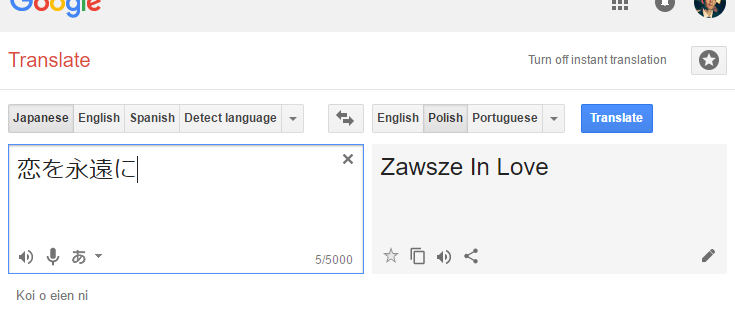In chapter 216 of the manga, it was revealed that the title "Zawsze in Love" was actually a mistranslation from an translation program. It didn't specify whether it was done using Google Translate or any other translation program.
The first volume of Nisekoi was published in 2011. At that year, Google Translate was not as good as it is now. I don't know the quality of Google Translate's Japanese to Polish translation in 2011 since I don't use Polish and never learned it, so there was no reason for me to translate from Japanese to Polish. My question is, has the author ever mentioned what translation program he used so that he ended up with the phrase "Zawsze in Love"? Or did he generate the phrase himself and used translation program as an excuse in the story?
Note that I'm not asking about the meaning of "Zawsze in Love", which already explained here. I'm asking about it's origin.

